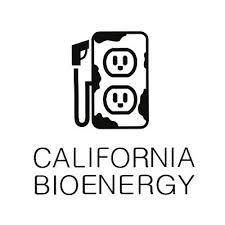Posts by Julia Levin
CalBio Secures CDFA Funding for Dairy Digesters
California Bioenergy LLC (“CalBio”) has secured funding for three new dairy digester projects that will be developed in Bakersfield, Gustine, and Modesto. The funding was awarded from the California Department of Food and Agriculture’s Dairy Digester Research and Development Program (DDRDP) and Alternative Manure Management Program (AMMP) as part of the California Climate Investments (CCI)…
Read MoreCPUC Affordability Report Shows that Wildfires, Not Bioenergy, Are Driving Electricity Rate Increases
In February, the CPUC issued a report in response to the Governor’s Executive Order on energy affordability. The CPUC found that the big four causes of electricity rate increases are: wildfires, Net Energy Metering, transmission and distribution. The report also found that bioenergy programs – the existing large biomass facilities and new, distributed scale facilities…
Read MoreEcostrat Article Shows Need for BDO Zones to Reduce Wildfire Risks
Jordan Solomon, President of Ecostrat, recently authored an article in Biofuels Digest about how BDO (Biofuel Development Opportunity) Zones can help to mitigate wildfire impacts. As Jordan writes, market-based solutions are criticial to help pay the costs of forest fuel treatments that remove excess vegetation and convert it to beneficial uses. One way to do…
Read MoreCalBio Achieves Major Milestone to Reduce Dairy Methane
California Bioenergy (“CalBio”), a leading developer of dairy digesters in California, just announced the successful completion of its 78th dairy digester project in the state. Dairy digesters provide critical reductions in methane – the most urgent climate solution – and other types of pollution, benefiting local communities and the global climate. CalBio’s digesters provide a…
Read MoreAir Board Adopts Major Changes to Low Carbon Fuel Standard
The California Air Resources Board (CARB) made significant changes to the Low Carbon Fuel Standard. After more than two years of back and forth, CARB adopted several major changes to the state’s Low Carbon Fuel Standard. On the positive side, CARB adopted more stringent carbon reductions between 2025 and 2030, including interim targets and an…
Read MoreArbor Signs Deal with Microsoft to Remove Carbon from Atmosphere and Produce Renewable Electricity
In September, Arbor signed a deal with Microsoft to deliver 25,000 tons of permanent carbon dioxide removal to the tech giant starting in 2027, when the startup’s first commercial project is expected to come online. As a part of the deal, Arbor will also generate 5 megawatts of clean electricity per year, enough to power…
Read MoreEcostrat Announces Partnership to Offer Feedstock Supply Insurance
BAC Member Ecostrat has announced a partnership with New Energy Risk to develop Feedstock Supply Insurance (FSI). FSI will mitigate risk in biomass feedstock supply chains by effectively capping feedstock costs and securing long-term project debt repayment obligations. Biomass supply chains, especially in the forest sector, are a significant barrier to the rapid scaling of…
Read MoreBAC Comments on Non-Energy Benefits
BAC submitted comments to the California Energy Commission in its proceeding to consider non-energy benefits and impacts. BAC’s comments emphasize the need to consider: You can see BAC’s comments here.
Read MoreYuba Water Agency Funds Forest Waste to Energy Project
The Yuba Water Agency just announced that it would provide both a large grant and a low-interest loan to Camptonville Community Partnership to build a 5 megawatt power plant that will use forest waste to generate power. The project, located near Dobbins in Yuba County, will use waste biomass that is removed for forest restoration…
Read MoreBAC Comments on Biomethane Procurement
BAC filed extensive comments in response to the CPUC’s order re-opening the pipeline biomethane procurement program. BAC’s comments focus on the need to accelerate biomethane procurement, to base pricing on lifecycle carbon intensity, to incentivize pipeline interconnection, and to fully value the many environmental and ratepayer benefits that biomethane capture and production provide. Read BAC’s…
Read More


